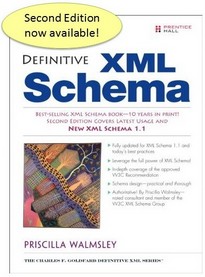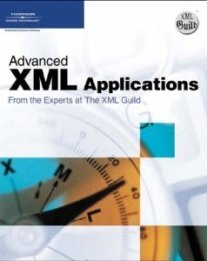gml:AbstractTimeGeometricPrimitive
gml:TimeGeometricPrimitive acts as the head of a substitution group for geometric temporal primitives. A temporal geometry shall be associated with a temporal reference system through the frame attribute that provides a URI reference that identifies a description of the reference system. Following ISO 19108, the Gregorian calendar with UTC is the default reference system, but others may also be used. The GPS calendar is an alternative reference systems in common use. The two geometric primitives in the temporal dimension are the instant and the period. GML components are defined to support these as follows.
Element information
Namespace: http://www.opengis.net/gml/3.2
Schema document: external/ogc/gml/3.2.1/temporal.xsd
Type: gml:AbstractTimeGeometricPrimitiveType
Properties: Global, Qualified, Abstract
Content
- Sequence [1..1]
- gml:metaDataProperty [0..*] deprecated
- gml:description [0..1] The value of this property is a text description of the object. gml:description uses gml:StringOrRefType as its content model, so it may contain a simple text string content, or carry a reference to an external description. The use of gml:description to reference an external description has been deprecated and replaced by the gml:descriptionReference property.
- gml:descriptionReference [0..1] The value of this property is a remote text description of the object. The xlink:href attribute of the gml:descriptionReference property references the external description.
- gml:identifier [0..1] Often, a special identifier is assigned to an object by the maintaining authority with the intention that it is used in references to the object For such cases, the codeSpace shall be provided. That identifier is usually unique either globally or within an application domain. gml:identifier is a pre-defined property for such identifiers.
- gml:name [0..*] The gml:name property provides a label or identifier for the object, commonly a descriptive name. An object may have several names, typically assigned by different authorities. gml:name uses the gml:CodeType content model. The authority for a name is indicated by the value of its (optional) codeSpace attribute. The name may or may not be unique, as determined by the rules of the organization responsible for the codeSpace. In common usage there will be one name per authority, so a processing application may select the name from its preferred codeSpace.
- gml:relatedTime [0..*]
from type gml:AbstractGMLTypefrom group gml:StandardObjectPropertiesfrom type gml:AbstractTimePrimitiveType
Attributes
| Name | Occ | Type | Description | Notes |
|---|---|---|---|---|
| gml:id | [1..1] | xsd:ID | from type gml:AbstractGMLType | |
| frame | [0..1] | xsd:anyURI | Default value is "#ISO-8601". |
Used in
- Group gml:Value
- Type gml:ArrayAssociationType (Element gml:members)
- Type gml:TimePrimitivePropertyType (Element gml:validTime)
- Type gts:TM_Primitive_PropertyType (Element gmd:extent)
- Type gml:RelatedTimeType via extension of gml:TimePrimitivePropertyType (Element gml:relatedTime)
- Type gml:ValueArrayPropertyType via reference to gml:Value (Element gml:valueComponents)
- Type gml:ValuePropertyType via reference to gml:Value (Elements gml:valueProperty, gml:valueComponent)
- Type gml:DomainSetType (Elements gml:domainSet, gml:multiPointDomain, gml:multiCurveDomain, gml:multiSurfaceDomain, gml:multiSolidDomain, gml:gridDomain, gml:rectifiedGridDomain)
Substitution hierarchy
- gml:AbstractObject
- can be substituted with gml:AbstractGML
- can be substituted with gml:AbstractTimeObject
- can be substituted with gml:AbstractTimePrimitive
- can be substituted with gml:AbstractTimeGeometricPrimitive
- can be substituted with gml:TimeInstant
- can be substituted with gml:TimePeriod
- can be substituted with gml:AbstractTimeGeometricPrimitive
- can be substituted with gml:AbstractTimePrimitive
- can be substituted with gml:AbstractTimeObject
- can be substituted with gml:AbstractGML



